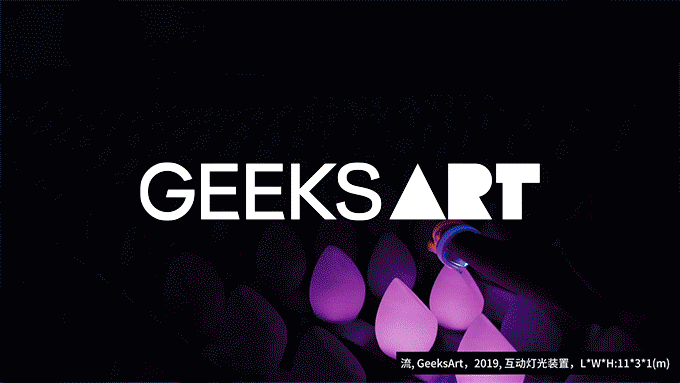苏绣,是苏州地区刺绣产品的总称,为江苏省苏州市民间传统美术。起源于苏州,是四大名绣之一。本案陈群英刺绣艺术馆座落在苏州中国绣品街的核心位置。
Su embroidery is the collective name of embroidery products in Suzhou, which is a traditional folk art of Suzhou City, Jiangsu Province. It originated from Suzhou and is one of the four famous embroideries in China. The Chen Qunying Embroidery Art Museum is located at the core area of the Chinese Embroidery Street of Suzhou.
陈群英老师是苏绣代表性传承人,国家高级工艺美术师。陈群英艺术馆为一栋三层楼高的临街商业建筑,是陈老师用来展示和销售个人作品的私人藏馆。本次更新主要集中在场馆的一楼区域,是响应程老师传承人,工艺美术师府烨程老师提出了展厅+工作室的复合需求,满足传播“绣”生活的美好理念。
Ms. Chen Qunying is a representative inheritor of Suzhou embroidery and a national senior artist and craftsman. Chen Qunying Art Gallery is a three-story commercial building facing the street, which is a private collection house used by Ms. Chen to display and sell her personal works. This update mainly focuses on the first floor area of the house. Ms. Chen’s daughter, Fu Yecheng, is also an excellent artist and craftsman. Ms. Fu believes that embroidery is “life”. Ms. Fu put forward the compound demand of exhibition hall + studio.
展馆外立面受城规影响,原本设计的通高外立面没有获得许可,最终只能以折中的方式达成设计目标。 入口以蚕丝为材料,通过绕线器组合形成的屏风,响应苏绣主题,也制造了趣味的光影变化。原本直白的开口,我们通过局部内退,转角弧形,大面外透但是单门进入的几个处理方式,使用得内外的转存关系变得更加柔和与自然。
The external facade of the exhibition hall is affected by city regulations, and the originally designed double-height external facade is not permitted, so the design goal could only be reached in a compromise way in the end. The entrance uses silk as the material, and the screen formed by the combination of winder responds to the theme of Suzhou embroidery, and also creates interesting changes of light and shadow. The original straightforward openings are made softer and more natural of the internal and external transition and existing relationships by our partial areas retreat inward, use of curved corners and large-area transparent glass but single door entry treatment.
蚕丝屏风跟随日光的升起与降落,折射出微妙的光影。光影的变化,是人与物理空间的过渡,也是绣生活传递的柔和之美。
The silkworm screen follows the rising and falling of daylight, refracting the subtle light and shadow. The change of light and shadow is the transition between people and physical space, and the soft beauty conveyed by embroidered life.
空间给予和影响人的情绪,而从外至内的过渡,不仅仅是大小和尺度的转折,还有情绪的演变。台阶踏步的设立是在营造刻意放慢的节奏,一上一下,是在小空间里设计赋予的仪式。蚕茧形态的装饰壁灯,柔和的光感,配合茧形的开窗,植物与光影,山石与草苔,都是为情绪铺设的环境物。
Space gives and influences human emotions, and the transition from the outside to the inside is not only a turn of size and scale, but also an evolution of emotions. The step treads are set up to create a deliberate slowing down rhythm, up and down, which is a ritual given by the design in a small space. The decorative wall lamp in the form of silkworm cocoon, the soft sense of light, together with the silkworm cocoon shaped open window, plants and light shadows, rocks and grass moss, are all environmental objects laid out for the mood.
光,可以治愈一切。当节奏慢下来,才会有时间去观察身边不经意的美。
Light, can heal everything. Only when the pace slows down will there be time to observe the unconscious beauty around you.
无论设计有多少纬度,作为展厅空间,第一个要考虑的应该是展陈性。原始空间是没有任何分隔的L字型直通空间,我们在设计上增加了两堵墙体。目的有二,一是为了使得挂墙式的展示空间面可以成倍数的放大,二是可以让原先直白的动线变得更加丰富,而空间的秩序和结构关系也前后与转换中变得更加的有层次。
No matter how many dimensions there are in design, as a exhibition hall space, the first thing to consider should be the property of exhibability. The original space is a straight L-shaped space without any separation, we added two walls in the design. There are two purposes, one is to make the wall-hung-type display space surface can be multiplied, and the second is to make the original straight lines become richer, and the order and structure of the space before and after the transformation becomes more hierarchical.
封闭与开放,永远都是一个对立的话题,充满着矛盾。在解决问题的时候,我们总是会执着于某种形式而进入孤岛。如何设定一个空间可以满足府烨程老师提出的“绣”生活教学与分享,保证相对私密,又不影响展厅的整体氛围。封闭的空间,势必会造成两个功能区的相互独立与排斥,完全开放的形式又无法满足教学,茶室接待等功能。
Closure and openness is always an opposing topic, full of contradictions. When it comes to solving problems, we will always persist in some form and go into lonely islands. How to set up a space that can meet the “embroidery” life teaching and sharing proposed by Mr. Fu Yecheng, ensure relative privacy, and not affect the overall atmosphere of the exhibition hall. The enclosed space will inevitably result in the mutual independence and exclusion of the two functional areas, and the completely open form can not meet the teaching, tea room reception and other functions.
整体以盒子状的形式,采用悬浮挂装,让底部空间保证连通,使得整体结构变得轻巧。穿孔板的密而不闭,透而有影又保证了视觉上的连通与独立。恰到好处的硬度也可以充当展陈的背板。
The overall box shaped form and suspension hanging are adopted to ensure the connectivity of the bottom space, making the overall structure lightweight. The perforated plate is dense but not closed, permeable but shadowed, ensuring visual connectivity and independence. Due to its proper hardness, it can also serve as the backboard for display.
形式追随机能,还因附着于空间与物质本身。盒子装置与顶部连接处设有一处空格的留白,可以用来后期展览陈列时作为挂钩的扣点,二是可以响应底部的悬空,突出整体结构的轻巧性。
Form follows function, but also depends on space and material itself. There is a blank space at the connection between the box device and the top, which can be used as a hooking fastening point for later exhibition and display, and also can respond to the overhang of the bottom, highlighting the lightness of the overall structure.
假梁与灯膜,分隔的尺度对应着工作室区域顶部的灯膜模数。而这个模数则是依据穿孔板结构计算而来。分隔的线条,从顶部顺沿往下,与立面的格栅串联,构建出序列的秩序。
The scale of the false beam separated from the light film corresponds to the modulus of the light film at the top of the studio area. The modulus is calculated based on the perforated plate structure. The lines of separation, from the top down along the edge, are linked in series with the grilles on the facade to build the order of the sequence.
介质的前中后,是空间的秩序,也是时间的顺序。是结构的张弛有度,亦是是氛围与美学的有机载体。
The front, middle and back of the medium are the order of space and the sequence of time. It is the well-balanced tension and relaxation of the structure, and also is the organic carrier of atmosphere and aesthetics.
乔治.德.基里科有一幅描绘逆光场景的象征性作品,叫《一条街道的神秘与忧郁》。画面的下部分有一半以上都是阴影,剩余的部分是光从前方射了过来。逆光蕴含了“这里对边的向往”。而只有明亮才会产生逆光。如果人或物背对着光,就会呈现出逆光的状态,人或物也就带有了剪影般的美丽轮廓,此时被隐去的是熟悉的常态,看见的则是朦胧而暧昧的倩影。我们愿意称之为“秘”的美感。
Giorgio de chirico has a symbolic work depicting a back-lighting scene called “Melancholy and Mystery of a Street”. More than half of the lower part of the image is shadow, and the remaining part is light coming from the front. Back lighting implies a “the yearning of here for the there”, and only brightness can produce back lighting. If the person or object faces the light with its back, it will show a state of back lighting, and the person or object will have a beautiful outline like a silhouette, at this time the familiar norm is hidden, and what is seen is a hazy and ambiguous silhouette. We would like to call it the “secret” beauty.
这种“秘”与“朦胧”实际上是一种工具,它可以影响人们的内心,激起人丰富的想象,促发值得期待的状态。重要的不是让对方去明白,而是驱动想要明白的心态,想要探索的兴趣,亦或是欲望。这是让人与空间产生对话的基础。不是准确的知会对方,而是让对方自己去解读空间。退而求进,隐而求知,默而求解。这便是渐进的艺术。
This “secret” and “haze” are actually tools that can influence people’s inward, stimulate their rich imagination, and promote a state worth waiting for. The important thing is not to make the other side understand, instead, it drives them to have a mindset of actively understanding, an interest in exploration, or a desire. This is the basis for a generating a dialogue between people and space. That is, it is not to command the other side accurately, but to let the other side interpret the space by himself. Seeking advancement when retreating, seeking knowledge when hidden, seeking solution when silent, this is the art of gradual progress.
项目信息——
项目业主:陈群英刺绣艺术馆 Chen Qunying embroidery art gallery
项目地址:江苏.苏州 Suzhou, Jiangsu
设计总监:祝年微 Niven
设计团队:康文俊Kang , 刘威海Ocean , 雷娇 Jiao
项目面积:128m2
设计时间:2021.10
完工时间:2022.9
项目摄影:邓春 Chun Den
文案撰写:祝年微 Niven










































